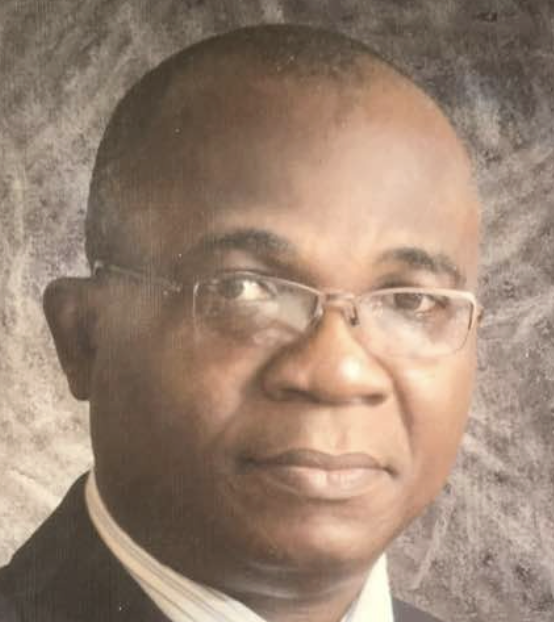Across West Africa today, a familiar argument circulates through public discourse, an argument wrapped in the language of civic virtue and personal morality. It goes like this: if a nation is failing, the fault lies not with leaders but with the people themselves. Citizens get the leaders they deserve. Corrupt leaders emerge from corrupt societies. Undisciplined leaders reflect undisciplined citizens. And until citizens fix themselves, national progress is impossible.
It is an argument that appears wise, even profound. Yet beneath its moralistic tone lies a serious distortion, one that blurs the lines of responsibility and subtly shifts blame away from those who hold real power. In some instances, this narrative even becomes a sophisticated tool of disinformation, deployed to confuse the public about where accountability truly lies.
It is necessary to confront this claim directly because it has become one of the most effective ways in which failed leadership protects itself from scrutiny. And it does so by collapsing two fundamentally different domains of responsibility: the moral duties of citizens and the constitutional obligations of leaders.
On the surface, the idea that we all have a role to play is uncontroversial. Citizens are indeed expected to act responsibly, work hard, and contribute positively to community life. But a citizen’s duty is personal and communal. It is measured in integrity, honesty, professionalism, and respect for the rule of law. A leader’s duty, by contrast, is structural and systemic. Leaders hold the sovereign instruments of the state. They determine budgets, craft laws, build or weaken institutions, fight or ignore corruption, enforce or neglect accountability. Their decisions shape the conditions under which millions live.
Advertisement
To treat these responsibilities as equivalent is to make a categorical error. A citizen’s failure to innovate cannot be compared to a leader’s failure to provide electricity. A taxi driver’s moral lapse is not analogous to a governor’s inability to secure his state or a minister’s mismanagement of resources. One sphere affects individual lives; the other shapes national destiny. The difference between them is not only one of magnitude but of essence.
A more sophisticated counterargument deserves acknowledgement. In mature democracies with stable institutions, there is indeed a long term dialogue between public values and political leadership. Over several generations, leaders and citizens shape each other. But this argument applies to fully functioning systems, not to contexts where leadership has already failed and is using culture as a shield. In situations where institutions are weak, accountability is absent, and power is personalised, the claim that the people are the problem becomes a convenient way of avoiding responsibility. It turns a complex political failure into a simplistic moral lecture.
History offers a clearer lens. The frequent invocation of Singapore as an example of values driven progress is based on a fundamental misunderstanding of what actually occurred. Singapore did not rise because of a pre existing culture of discipline that produced enlightened leaders. It rose because visionary leaders used the formal instruments of state power to shape national behaviour. Lee Kuan Yew and his colleagues built institutions that enforced meritocracy, punished corruption, and rewarded excellence. They did not wait for the society to change on its own. They created the conditions under which the society changed.
Advertisement
Singapore’s culture did not create its governance. Singapore’s governance created its culture.
This historical sequence matters because it dismantles the comforting belief that societal virtue must come first. In countries where the state is weak and political elites are unaccountable, telling citizens to fix themselves first is not a path to renewal. It is a delay tactic. And it is one that has been used repeatedly across the world. Rodrigo Duterte in the Philippines once blamed national dysfunction on supposed indiscipline among the people, even as his own administration struggled to reform institutions. Some African leaders have echoed similar sentiments, arguing that their citizens lack patriotism or do not deserve good governance, as a way to deflect from governance failures. These narratives are politically convenient precisely because they shift blame downward and disperse it across millions who do not wield power.
This is how a moral message becomes a strategic one. It is no longer about values. It becomes about control.
There is an even deeper danger. When the idea that leaders reflect society is pushed without nuance, it produces a circular explanation for national failure. If leaders fail, society is blamed. If society fails, leaders are blamed for emerging from it. Responsibility becomes diffused across the entire population. And once responsibility is everywhere, it is effectively nowhere. This rhetorical loop is elegant, but it paralyzes accountability. It ensures that no one in power is ever held directly responsible for specific failures.
Advertisement
It is therefore not surprising that this argument appears frequently in political rhetoric and partisan media. It creates the impression of philosophical depth while in reality protecting those in authority.
This brings us to another crucial point: holding leadership accountable is not cynicism. It is civic duty. In West Africa, where criticism is often framed as unpatriotic, it is necessary to insist on this truth. It is not negative to ask leaders to perform the duties for which they are paid from the public purse. It is not bitterness to demand transparency, competence, and integrity. To call out leadership failure is not to abandon hope. It is to honour the social contract.
Urging citizens to focus solely on internal reflection while ignoring systemic breakdowns is not wisdom. It is moral resignation. It becomes an appeal for silence in the face of dysfunction. Citizens, as individuals, simply do not possess the formal instruments of state. They do not command the armed forces. They do not restructure economies. They do not enact or enforce national budgets. Civil society may indeed be the bedrock of a nation, but the execution of public policy is the sovereign duty of leaders. When leaders fail to use the tools available to them, no amount of citizen virtue can compensate.
This is why the argument that nation building starts with the people must be correctly understood. Yes, personal morality matters. It strengthens families, communities, and the wider social fabric. But nation building in the institutional sense, the building of courts, the reforming of police forces, the stabilising of power grids, the designing of economic systems, begins with leadership. Values flourish when leaders enforce standards and protect the rule of law. Progress takes root when leaders create incentives for excellence and consequences for wrongdoing. Societies improve when institutions improve.
Advertisement
The reverse is rarely true.
This is not an argument against virtue. It is an argument against misdirection. A nation must cultivate both values and institutions, but values alone do not substitute for governance. Personal goodness cannot compensate for public failure. Individual righteousness does not generate structural competence. Citizens should indeed uphold integrity, but they must also reject narratives that use morality to disguise or excuse leadership failure.
Advertisement
West Africa stands at a critical moment. Demographics are shifting. Economies are transforming. Youth populations are demanding more from their governments. In such a moment, clarity is essential, clarity about responsibility, clarity about power, and clarity about the architecture of accountability. Citizens must resist narratives that shift blame downward and must remain vigilant against the growing sophistication of political messaging that attempts to obscure where responsibility truly lies.
Nations do not fail because ordinary people are imperfect. They fail because those entrusted with power refuse to use it for the good of all. A society can aspire to moral excellence, but without leaders who build institutions worthy of the people they serve, that excellence will never translate into national transformation.
Advertisement
Real progress begins when responsibility is properly located and courageously demanded.
Rear Admiral Ati-John (rtd) lives in Lagos.
Advertisement
Views expressed by contributors are strictly personal and not of TheCable.




